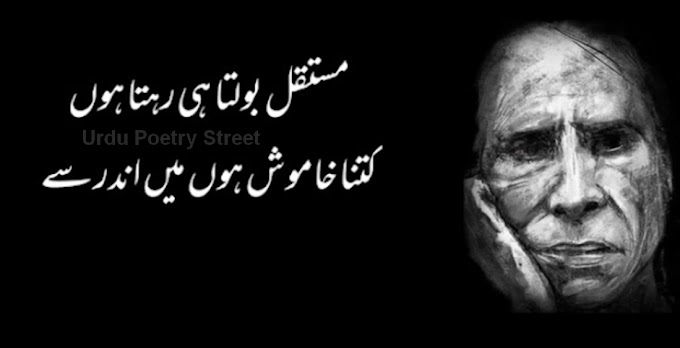Khatra Koi Nei Mujhy Kisi Zawaal Ka
Mein Deewana Hun Muhammad (S) Ki Aal Ka
خطرہ کوئی نہیں مجھے کسی زوال کا
میں دیوانہ ہوں محمدﷺ کی آل کا
Exploring the Beauty and Spirituality of Islamic Poetry
Poetry has long been revered as a medium for expressing the deepest sentiments of the human soul, and within the Islamic tradition, it holds a particularly revered place. Islamic poetry, spanning across centuries and regions, serves not only as a form of artistic expression but also as a means of conveying spiritual insights, moral teachings, and cultural heritage.
Rooted in the rich tapestry of Islamic culture and history, Islamic poetry encompasses a diverse range of themes, styles, and forms, each reflecting the unique perspectives and experiences of its creators. From the mystical verses of Sufi poets to the elegiac odes of classical Arabic literature, Islamic poetry offers a profound insight into the spiritual and intellectual heritage of the Islamic world.
One of the most enduring and influential forms of Islamic poetry is Sufi poetry. Sufism, the mystical dimension of Islam, has inspired poets across centuries to explore themes of divine love, spiritual enlightenment, and the journey of the soul. Renowned Sufi poets such as Rumi, Hafiz, and Attar have penned verses that transcend time and space, resonating with seekers of truth and wisdom across cultures and generations. Their poetry often employs metaphor, allegory, and symbolism to convey profound spiritual truths, inviting readers to embark on a journey of self-discovery and inner transformation.
Central to Sufi poetry is the concept of divine love, or "ishq," which is portrayed as the highest form of spiritual attainment. Through vivid imagery and lyrical language, Sufi poets depict the soul's longing for union with the Beloved, symbolizing the quest for union with the Divine. This theme of love permeates much of Islamic poetry, serving as a metaphor for the soul's yearning for transcendence and ultimate reunion with God.
In addition to Sufi poetry, classical Arabic literature has also produced a wealth of poetic masterpieces that continue to inspire and captivate audiences today. Classical Arabic poetry, characterized by its intricate rhyme schemes, complex meters, and eloquent language, flourished during the Islamic Golden Age and remains an integral part of Islamic literary tradition. Poets such as Al-Mutanabbi, Al-Ma'arri, and Abu Nuwas are celebrated for their contributions to Arabic poetry, which encompasses a wide range of themes including love, nature, war, and morality.
Furthermore, Islamic poetry encompasses a diverse array of regional and linguistic traditions, reflecting the cultural richness and diversity of the Islamic world. Persian poetry, for example, boasts a long and illustrious history, with luminaries such as Ferdowsi, Omar Khayyam, and Saadi making enduring contributions to the genre. Urdu poetry, influenced by Persian and Arabic traditions, has also produced celebrated poets like Mirza Ghalib, Allama Iqbal, and Faiz Ahmed Faiz, whose verses continue to resonate with audiences worldwide.
Beyond its literary merit, Islamic poetry serves as a vehicle for preserving and transmitting cultural heritage and religious teachings. Many Islamic poems contain moral lessons, ethical guidance, and reflections on the human condition, offering insights into the values and principles that underpin Islamic civilization. Moreover, poetry has played a central role in Islamic rituals and devotional practices, with verses from the Quran and other sacred texts often recited or chanted in poetic form during religious ceremonies and gatherings.
In conclusion, Islamic poetry stands as a testament to the enduring power of language and creativity to convey the deepest truths of the human experience. From the mystical musings of Sufi poets to the lyrical verses of classical Arabic literature, Islamic poetry continues to inspire, enlighten, and enrich the hearts and minds of believers and seekers alike. Through its profound insights, timeless beauty, and spiritual resonance, Islamic poetry remains a cherished treasure of the Islamic tradition, inviting readers to explore the depths of faith, love, and wisdom.










